Adaptation
Culture shock
- Coming from a country which has a different culture, language and customs can be a disorienting experience. Culture shock can be experienced in a number of ways. For example, after the excitement of the first few weeks, you may find yourself feeling a bit lonely, sad or confused. This is a natural response. With friends and family no longer available, you will have to find new ways of doing things, different ways of communicating with people, and alternate ways of learning in the classroom. This can be a very stressful time. While one student may experience culture shock by being extremely lonely or homesick, another student may experience it through physical symptoms such as headaches, upset stomach, insomnia or an inability to concentrate. Symptoms can range from feeling sad and low to a more severe depression. You may be aware of these feelings in the first few weeks, or the reaction may be delayed.
Dry skin
- Frequent showers plus the dry air in heated apartments during the winter can cause the skin to become extremely dry. A general remedy is to use a moisturizing lotion or baby oil on your skin. When in doubt, seek medical help. Try to increase the humidity in the apartment by buying a humidifier or simply by filling a container with water every few days and placing it in the bedroom. We hope these hints will be helpful as you and your body adjust to a different climate.
Fitting in
- Although Canada is billed as a multicultural country, there are social norms that are generally accepted no matter where you are in the country. You can learn more about life in Canada through CIC and the Centre for Intercultural Learning.
Making friends
- Loneliness is one of the most worrisome feelings reported by international students and making new friends is the best remedy for dealing with this problem. Make a special effort to reach out and meet people. Personal and social contacts are vital to your well-being and your adjustment here.
- One of the easiest ways to meet people is by joining clubs or associations, in the classroom or by working on projects together. It’s up to you to say, “Hello!” Cross-cultural interactions are extremely rewarding and will definitely enhance your self-esteem and your sense of identity.
- If you experience any adjustment difficulties during your time here, please come and see us. We understand how difficult it can be for some students and we can provide you with a great deal of support. Our services are confidential.
Personal hygiene
- Some students who have never lived in a cold climate may be unaccustomed to certain personal hygiene habits that are generally common to Canadians. In some countries, it may be customary to take two or three showers per day. Here, because of the cold weather, some people tend to bathe less often. During the winter when people are warmly dressed and live, work and travel in enclosed spaces, ventilation may be less than adequate. For this reason it is very important to remember to shower at least every second day and to use a deodorant to keep body odours to a minimum. There are many kinds of deodorants and they are inexpensive and readily available at most pharmacies or grocery stores. Using a deodorant is a very good investment especially if you want to make and keep friends.
Clothing
Clothing is generally determined by your personal preference, and while style is personal, living in Saskatchewan also makes it important to consider function when buying clothing – particularly for the winter months. Temperatures frequently dip to -30°C and lower each winter and it is important to be dressed appropriately for the weather to avoid injury.
There are many malls and retail shops in all four campus cities, offering both new and gently-used clothing. Below is a list of the larger shopping malls:
Malls in Moose Jaw
Malls in Prince Albert
Malls in Regina
Malls in Saskatoon
Child care
• Licensed day care centres or private homes
• Unlicensed day care in private homes
• Pre-School (Prekindergarten)
Children who are five years and older:
• Kindergarten to Grade 12 (K-12) education
For more information, you can contact the Child Care Regional Office closest to you:
- Saskatoon: 306-933-6071
- Regina: 306-787-4980
- Moose Jaw: 306-694-3644
- Prince Albert: 306-953-3612
Daycare services are available for students and employees in Prince Albert, Regina and Saskatoon campus. Please visit Sask Polytech student services for more information.
Climate and weather
The temperature can range in Saskatchewan from +35°C in the summer to -40°C in the winter. It’s especially important to dress appropriately for the weather. Although the lower temperature can be a bit of shock for international students who come here from warmer climates, winter can also be a highly enjoyable season with many outdoor activities to engage in. There are a wide range of winter sports you can try out for the first time, many winter festivals and events to experience and just being out and about enjoying the outdoors. How much you are able to enjoy winter depends a great deal on the clothes you wear. A good winter coat, boots, mitts (or gloves), toque (or hat) and a scarf are staples in most Canadians’ wardrobes.
The Saskatchewan Immigration website has a lot of valuable information regarding appropriate dress for the winter.
You’ll find the weather is a common topic of conversation in Canada – we have a lot of weather changes so there is a lot to talk about! You can visit Environment Canada and the Weather Network to learn more about the weather in Canada.
Employment in Canada
- Co-operative Education consists of a three-way partnership between students, Sask Polytech and employers. It is a component of most business and all engineering technology diploma programs offered in Moose Jaw.
- When applying for your study permit, if you are in one of the co-op programs, you should apply for your co-op work permit at the same time as your study permit. If you failed to do this, you should apply for the co-op work permit as soon as possible. The International Education department can provide you with an accompanying letter to submit during the application.
Off campus
- As an international student, you are permitted to work off campus once your studies begin. You must be a full-time student with a valid study permit. Also, you must be taking a program that is a least six months long that leads to a certificate, diploma or degree. You can work up to 20 hours per week during regular academic sessions and full-time during scheduled breaks.
On campus
- International students are permitted to work on campus at Sask Polytech provided you are a full-time student and have a valid study permit. Jobs are limited. There are less than 15 student jobs available. It is highly unlikely you will find employment on campus.
Post-graduation
- Students studying certificate, diploma or degree programs at Sask Polytech that are at least eight months in length may be eligible to work after graduation. You need to apply for a post-graduation work permit.
Social Insurance Number (SIN)
- If you work, you will need a Social Insurance Number (SIN). A Social Insurance Number will be necessary for payroll and income tax purposes. Information and application forms are available in any Service Canada Centre (telephone: 1-800-206-7218). To apply for a SIN, one requires an off-campus work permit, a post-grad work permit or a job offer from an on-campus employer.
Spouse or common-law partner
- There may also be options for the spouse or common-law partner of a full-time Sask Polytech student to work. Please visit CIC for more information.
Student Employment Services
- Sask Polytech students and graduates are highly sought after by employers. With nearly a third of Canada's labour force set to retire in the next five to ten years, employers are actively searching for quality employees to fill vacancies left by retirees, and to provide new skills for evolving industries and their technologies.
- The Student Employment Services offices at each campus offer many support services and host annual career fairs.
Food
Most Canadians shop at large supermarkets for their groceries. There are a number of large chain supermarkets in each campus city.
The Real Canadian Superstore has a large selection of grocery items and is known for have a large selection of international foods, including halal selections.
Other options include:
In the larger centres of Saskatoon and Regina there are a large number of specialty shops that specialize solely in certain foods (like halal or kosher foods). A Google search for the city you reside in will provide a list of options.
|
Moose Jaw stores |
Specialties and information |
|---|---|
|
Zuking Tindahan |
|
|
Real Canadian Superstore |
|
|
Safeway |
|
|
Bulk Barn |
|
|
Nutter's Bulk & Natural Foods |
|
Prince Albert stores |
Specialties and information |
|---|---|
|
P.A. Asian Food Store |
Food from Africa, Latin America, India, Asia, Burma and more. |
|
J's Mabuhay Ethnic Groceries |
Filipino and Asian groceries |
|
Safeway |
General groceries, produce and meat |
|
Real Canadian Superstore |
Large section of International foods and general groceries, halal meats and produce |
|
Bulk Barn |
Bulk grocery items |
|
Wholesale Food Club |
Bulk grocery items |
|
Nutter's Bulk & Natural Foods |
Bulk and specialty foods |
|
Sobeys |
General groceries, produce, pre-prepared meals and meat |
|
Regina stores |
Specialties and information |
|---|---|
|
India Food Centre |
|
|
Spice Bazaar |
|
|
East Indian Grocery Store, |
|
|
Bombay Spices, |
|
|
Central Halal Meat & Grocery |
|
|
Rosemond African Foods & Market Inc |
|
|
Ngoy Hoa Asian Foods Ltd |
|
|
Mang Gerry’s Filipino Store, |
|
|
Seoul Mart, |
|
|
T&D Filipino Sari-Sari Store, |
|
|
Ukrainian Co-op, |
|
|
Real Canadian Superstore |
|
|
Safeway |
|
|
Hometown Co-op |
|
|
No Frills |
|
|
Sobeys |
|
Saskatoon stores |
Specialties and information |
|---|---|
|
Ahmad’s Grocery |
|
|
Bistak Groceries |
|
|
Broadway Fish Market |
|
|
Brothers Halal Meat & Groceries (East) |
|
|
Bulk Barn |
|
|
Charlie’s Seafood Market |
|
|
Chung Wah Chinese Grocery and Seafood |
|
|
Eastern Market |
|
|
EE Buritos |
|
|
EMCO finer foods |
|
|
Farmer’s Market |
|
|
Filipino Asian Foods |
|
|
Global Pinoy Food Store |
|
|
Lu’s Market Ltd |
|
|
Madina Foods and Halal meats (Brothers) |
|
|
Maggie’s Sausage house and Deli |
|
|
Pak Can Foods and Halal Meat Inc. |
|
|
Pardessi bazaar |
|
|
Petra Markets |
|
|
Royale African Store |
|
|
Safari Market |
|
|
Saskatoon Persian |
|
|
Saskatoon Victoria Fine Foods |
|
|
Slavianka Ukrainian & European Food Store |
|
|
Steep Hill Food Co-op |
|
|
Swadesh Supermarkets
|
|
|
10 Thousand Villages |
|
Finances
Currency and money
- Canada’s official currency is the Canadian dollar ($). There are 100 cents (¢) in a dollar. Coins have different sizes, shapes and colours. They have nicknames that Canadians use in everyday life.
| Name | Value | Dollar value |
|---|---|---|
Nickel |
$0 .05 | 1/20 dollar |
Dime |
$ 0.10 | 1/10 dollar |
Quarter |
$ 0.25 | 1/4 dollar |
Dollar or “loonie” |
$1.00 | one dollar |
Two dollars or “toonie” |
$2.00 | two dollars |
Paper currency is found in units of $5, $10, $20, $50, and $100, and is clearly marked in numerals and words, both in English and French. Each denomination has a distinctive colour to aid with identification. Keep in mind that some establishments do not accept $50 and $100 bills.
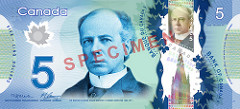
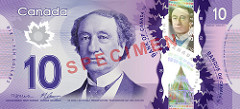
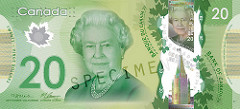
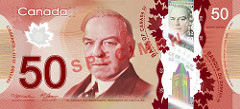
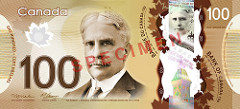
Currency exchange
- Any financial banking institution or foreign exchange bureau will exchange currency. We recommend that you ask what administrative fees are charged. Some establishments will charge a “fixed fee” where others will charge a percentage regardless of the amount being exchanged.
- The Bank of Canada website offers an excellent reference in determining exchange rates.
- Universal Currency Converter and Oanda allow you to perform foreign exchange rate calculations on the Internet.
Banking
One of the first things you should do after you arrive in Canada is open a bank account. It is unwise to carry or keep large amounts of cash in your living quarters or on your person.
- Choosing a bank
- Consider convenience. Most banks have main offices and branches located throughout the city. In order to open an account some banks may require that you live in the vicinity. Large banks include Scotiabank, Royal Bank of Canada, TD Canada Trust, Bank of Montreal and CIBC.
- Opening a bank account
- Go to the New Accounts department. A bank employee will explain the different types of accounts and the costs and services of each type of account. It is a good idea to check with several banks to determine which bank offers the best account for your needs. Many students open both chequing and savings accounts. In most banks it is possible to open a bank account by showing your passport, your Sask Polytech Letter of Admission or identification card, your Saskatchewan Health Card, and study permit. You may also be asked to show a copy of your apartment lease as proof of residency.
- Types of bank accounts (IMPORTANT: Never send cash through the mail.)
- Chequing accounts
- These accounts are a way to keep your money safe while still maintaining easy access to it. Reasons for having a chequing account are:
- Cheques are an easy way to pay bills/rent, especially by mail.
- A cancelled cheque (i.e., a cashed cheque) which is returned to you in your monthly statement serves as a receipt — proof that you have made a payment.
- Monthly statements of your expenditures and a monthly notation of your bank balance provide a record and a review of your expenditures.
- Savings account
- If you bring enough money for the entire term or a good portion of the money you will require, you probably should put most of it in a savings account. A savings account earns interest and withdrawals can be made regularly to cover your immediate living expenses. You can withdraw the money in cash, or, especially for large amounts, in the form of a bank cheque. If you have a savings and a chequing account in the same bank, you can transfer funds from your savings account to your chequing account with your bank card.
- Chequing accounts
- Bank machines
- An automated bank machine (or ABM) is another way to withdraw cash, make deposits and pay certain bills such as telephone and electricity bills. To use a bank machine you must apply for a bank card or Interac card from the bank which administers your account.
Budgeting
- Tuition and fees are a sizeable part of the cost of attending school. However, the biggest costs associated with being a student are those related to paying rent (and associated utilities), food, transportation, clothing and entertainment, to name a few. It is important to create a budget and plan how you are going to allocate your resources while studying. There are many online resources to help you plan a budget. Some options for assistance are CIBC Student Budget Calculator, TD Student Advice, and Microsoft College Budget.
Income tax
- International students are permitted and encouraged to complete a federal (Canada) income tax return whether they have worked or not. Employment income, scholarships, bursaries and fellowships are normally subject to income tax.
- Provincial and federal income taxes are deducted from your salary on every pay cheque. Income tax may be refunded depending on your annual income and expenses. Every year you will be required to file an income tax return before the end of April. To assist you in completing the income tax return, Canada Revenue Agency publishes a Students and Income Tax Booklet. International Education will arrange for a workshop on this topic.
- Please review information regarding Federal and Provincial taxes.
Taxes
- Every year Canadians and most international students complete Federal and Provincial Income Tax forms and apply for a GST and PST tax credit. Workshops are offered every year in March and are intended to help you complete an income tax return.
- The Federal Government website has more information on taxes. They also have a series of very informative videos that you should consider viewing during tax time.
Health care
If you have a health emergency, call 911.
Whether you're feeling stressed out, need treatment or support, or require specific health information, you can contact the campus health nurse at:
Moose Jaw Campus
Health Services, Room 7.111
306-691-8400
Prince Albert Campus
Health Services, Technical Centre
306-765-1593
Regina Campus
Health Services, Room 107
306-775-7347 or 306-775-7348
Saskatoon Campus
Health Services, Room 123
306-659-4046
Health coverage
Eligible international students can apply for a Saskatchewan Health card upon your arrival in Saskatchewan. Read our Saskatchewan Health Card Guide (pdf) to learn more about how to apply or extend your SK health card for yourself and your family (if applicable).
In addition, international students are eligible for Saskatchewan Polytechnic Student Association’s Health and Dental Plan that provides supplemental coverage that may not be included in your SK health coverage.
Hospitals and clinics
Moose Jaw
- Dr. F.H. Wigmore Regional Hospital
55 Diefenbaker Drive, Moose Jaw SK S6H 1H3
306-694-0200 - Medi-clinicsThis link shows all medical facilities in Moose Jaw
Prince Albert
- Prince Albert has one major hospital and four walk-in medi-clinic facilities.
- Victoria Hospital1200 24th Street West, Prince Albert SK S6V 5T4
306-765-6000 - Medi-clinicsWalk-in facilities at various locations in Prince Albert
- Victoria Hospital1200 24th Street West, Prince Albert SK S6V 5T4
Regina
- Regina has two major hospitals and 14 walk-in medi-clinic facilities.
- Pasqua Hospital
4101 Dewdney Avenue, Regina SK S4T 1A5
306-766-2222 - Regina General Hospital
1440 - 14th Avenue, Regina SK S4P 0W5
306-766-4444 - Medi-clinics
Walk-in facilities at various locations in Regina
- Pasqua Hospital
Saskatoon
- Saskatoon has three major hospitals and 10 walk-in medi-clinic facilities:
- Royal University Hospital
103 Hospital Drive, Saskatoon SK S7N 0W8
306-655-1000 - Saskatoon City Hospital
701 Queen Street, Saskatoon SK S7K 0M7
306-655-8000 - St. Paul’s Hospital
1702- 20th Street, Saskatoon SK S7M 0Z9
306-655-5000 - Medi-clinics – Walk-in facilities at various locations in Saskatoon
- Royal University Hospital
Holidays and statutory holidays
Sask Polytech observes statutory holidays. Closure dates are listed on the academic year and breaks page
Housing
Canada Homestay
- As a Sask Polytech student studying in Saskatoon, you can live with a Canadian family while you complete your studies, learn about Canadian culture, and make lifelong friends. Upon acceptance at Sask Polytech, complete the application. Applications should be submitted a minimum of six weeks prior to the start of classes.
- The minimum stay with homestay is eight weeks. All eight-week fees must be paid at
time of application. These include:
- $780/four weeks (28 days)
- $220 registration, orientation, and placement fee
- $500 refundable security deposit that is to be paid at time of application
- Total fees for an eight-week minimum homestay to be paid at time of application are: $2,280 ($220 + [2 x $780] + $500).
- If you have any questions, please visit the Canada Homestay website or email SaskPolytech@canadahomestayinternational.com.
Housing registries
- If you are looking for an apartment, room and board or shared accommodation, the Students' Associations maintain housing registries. Sask Polytech or the Students' Associations do not investigate or approve accommodations listed in the housing registries and we do not assume responsibility for rental arrangements made between you and the landlord.
- If you are looking for accommodation, you can also search on Kijiji, Craigslist, Boardwalk Rental Communities, Rentals.ca, Gottarent.com, Avenue Living or any of the rental agencies operating in Saskatoon.
Housing problems
- If you run into any problems with your landlord regarding the terms of your lease or the condition of your apartment, consult any or all of the following places to be sure of your rights and responsibilities.
Insurance
- We recommend that you purchase a home/tenant insurance which covers you against specific dangers to your possessions, in case of theft, fire, smoke or water damage, etc. Home/tenant insurance also includes a legal liability for unintentional property damage to the premises or their contents—for example, accidentally setting the apartment on fire, causing water damage to your neighbours, etc.
- The cost of home/tenant insurance varies according to the total value of the belongings you wish to insure, as well as other factors such as the location of your apartment.
- The minimum period of coverage is normally twelve months.
- To find and compare insurance options, search the internet for “Saskatchewan Home and Tenant Insurance”. You should also review the Saskatchewan Office of Residential Tenancies. This shows the rights and responsibilities of both the landlord and tenant.
Utilities
- Depending on where you end up living, you may need to arrange for utilities (electricity, natural gas, telephone, etc.). Check the Saskatchewan Immigration website for information on how to arrange for utility hook-ups.
- Remember – The voltage system in Canada is 110 volt, 60 hertz. If you are planning to bring some of your own electrical appliances to Canada, you might need to buy a voltage transformer/converter so that your appliances will work.
Identification
Leisure and social activities
These are an essential part of your life and are vital to your well-being — in moderation, of course.
Most on-campus activities are organized by student groups. Your campus Students' Association organizes most of the campus-wide events. Students will organize their own events by class or program as fundraisers for their grads (or just for fun). Check for events and activities on mySaskPolytech, bulletin boards and through your class representatives.
Off-campus opportunities abound. Each of our cities has a rich selection of leisure and recreation events and opportunities. Here are a few links to help you stay in the loop in your city.
Saskatoon
Regina
Prince Albert
- Prince Albert Daily Herald
- the Prince Albert event calendar
- Prince Albert cinemas
- Tourism Prince Albert
Moose Jaw
- Moose Jaw Times Herald
- the Moose Jaw event calendar
- Moose Jaw nightlife guide
- Moose Jaw cinemas
- Tourism Moose Jaw
Saskatchewan (provincial)
Post office
The government postal system in Canada is efficient. Stamps for letters inside Canada cost $0.85 (plus G.S.T.), while stamps for overseas are $2.50 (plus G.S.T.) and United States $1.20 (All prices are subject to change).
Canada Post offers a variety of services from sending letter mail, priority courier, sending parcels to distant places to creating money orders.
Canada Post offices are located throughout Saskatchewan. Their hours of operation vary from location to location. Check a convenient location near you.
Shopping
Most stores are open seven days a week with reduced hours on the weekend.
Sales tax will be applied to purchases. Saskatchewan residents are subject to the 5% federal goods and services tax (GST) and a 6% provincial sales tax (PST). Each province sets their own tax rate so taxes vary depending on where you are in Canada.
Be consumer savvy
- You will find consumer information on practically everything on this comprehensive site maintained by Industry Canada. Consult the databases before making big decisions. For example, you can:
- Find out how vulnerable you are to consumer fraud.
- Download the Consumer Handbook.
- Gain access to the Canadian Consumer Information Gateway.
- Find important tips, questions and advice for consumers all in one place!
- Another very valuable document is Shopping in Canada: A consumer guide for Newcomers to Canada produced by Industry Canada.
Transportation
Cars and driving
- You will need to have a valid Saskatchewan driver’s license to drive in Saskatchewan. The Saskatchewan Immigration website has information on how to arrange for your driver’s license.
- Please note that a driver’s license may be required for you to complete your work placement, practicum or co-op work term. If this is required for your program you should begin the process of gaining a valid Saskatchewan driver’s license as soon as possible. If you are required to take a driving test, it is much easier to take the test in the months when the roads aren’t covered with snow and ice.
Public transportation
- All four campus cities are serviced by a public bus system. Fares differ from one city to another and monthly passes can be purchased that offer a further discount for frequent riders. For students who ride the bus daily, a monthly bus pass is usually cheaper than paying a fare each time you use the bus. Follow the links below for transit information in the city in which you will be studying.
Taxis
- As a regular means of transportation, taxis are very expensive. Taxis are easily found on any major street. Simply raise your hand to hail a cab. The price is indicated on meters located up front beside the driver. You can also phone for a taxi to book one. Just search the internet for cab companies in your city.
